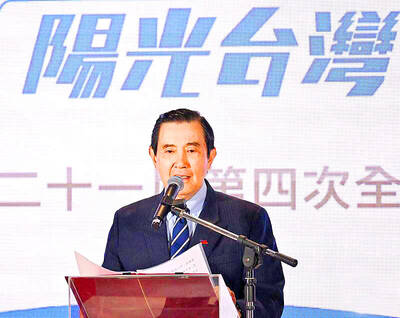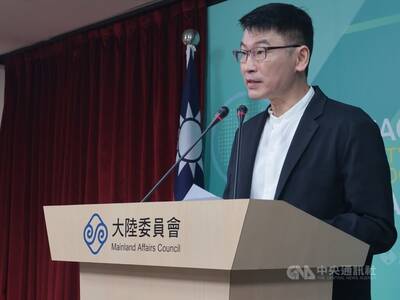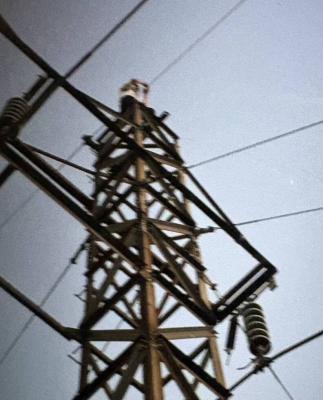Poultry farmers and vendors concerned about an impending ban on killing chickens outside of licensed abattoirs packed a public hearing on the issue yesterday at the legislature.
The law, passed amid fears of a bird-flu epidemic, is scheduled to take effect on April 1. For now, live chickens packed in stacked cages awaiting buyers can still be seen in traditional markets nationwide.
At the public hearing, organized by Chinese Nationalist Party (KMT) Legislator Ting Shou-chung (
"Everybody agrees with the government's broader direction in the long run," Ting said. "However, we have to make sure that we do not destroy people's livelihoods along the way."
Others said the law should be rescinded altogether.
"Taiwan is not a bird flu country," said Hsu Shi-yuan (
The ban, which would cover both traditional markets and speciality restaurants, tramples on the livelihoods of poultry sellers and farmer and deprives consumers of choice, Hsu said.
Officials from several ministries and agencies attended the hearing. Most struck a conciliatory tone, stressing that the ban would not be enacted before the industry is ready for the change and pointing out that the ban could help protect the poultry industry in the event of a bird flu outbreak.
"If bird flu comes to Taiwan before the upgrades are made to poultry safety, the poultry industry is going to be hardest hit," Center of Disease Control Director Steve Kuo (
"It is very clear that bureaucrats are not cooks," said Chen De-shiow (
"Customers are discerning," Chen said, and are willing to pay a premium price for fresh chicken that has never seen the inside of a refrigerator.
"As soon as I put something in the fridge, my customers don't want to touch it," Chen said. "There is a definite difference in taste and texture."

‘ANGRY’: Forgetting the humiliations and sacrifices of ‘the people of the Republic of China’ experienced disqualified Lai from being president, Ma Ying-jeou said Former president Ma Ying-jeou (馬英九) yesterday criticized President William Lai (賴清德) over what he called “phrasing that downplayed Japan’s atrocities” against China during World War II. Ma made the remarks in a post on Facebook on the 80th anniversary of the end of World War II. Ma said he was “angry and disappointed” that Lai described the anniversary as the end of World War II instead of a “victory in the war of resistance” — a reference to the end of the Second Sino-Japanese War (1937-1945). The eight-year war was a part of World War II, in which Japan and the other Axis

The Mainland Affairs Council (MAC) yesterday announced a ban on all current and former government officials from traveling to China to attend a military parade on Sept. 3, which Beijing is to hold to mark the 80th anniversary of the end of the Second Sino-Japanese War. "This year marks the 80th anniversary of the end of World War II and the Republic of China’s victory in the War of Resistance [Against Japan]," MAC Deputy Minister and spokesperson Liang Wen-chieh (梁文傑) told a regular news briefing in Taipei. To prevent Beijing from using the Sept. 3 military parade and related events for "united

‘OFFSHORE OPERATIONS’: Also in Dallas, Texas, the Ministry of Economic Affairs inaugurated its third Taiwan Trade and Investment Center to foster closer cooperation The 2025 Taiwan Expo USA opened on Thursday in Dallas, Texas, featuring 150 Taiwanese companies showcasing their latest technologies in the fields of drones, smart manufacturing and healthcare. The Taiwan External Trade Development Council (TAITRA), the event’s organizer, said the exhibitors this year include Hon Hai Precision Industry Co (Foxconn), the world’s largest contract electronics manufacturer; AUO; PC brand Asustek Computer; and drone maker Thunder Tiger. In his opening speech, TAITRA chairman James Huang (黃志芳) said he expected Texas to become a world-class center for innovation and manufacturing as US technology companies from Silicon Valley and Taiwanese manufacturers form an industrial cluster

A 20-year-old man yesterday evening was electrocuted and fell to his death after he climbed a seven-story-high electricity tower to photograph the sunset, causing a wildfire on Datong Mountain (大同山) in New Taipei City’s Shulin District (樹林), the Taoyuan Police Department said today. The man, surnamed Hsieh (謝), was accompanied on an evening walk by a 20-year-old woman surnamed Shang (尚) who remained on the ground and witnessed the incident, capturing a final photograph of her friend sitting atop the tower before his death, an initial investigation showed. Shang then sought higher ground to call for help, police said. The New Taipei